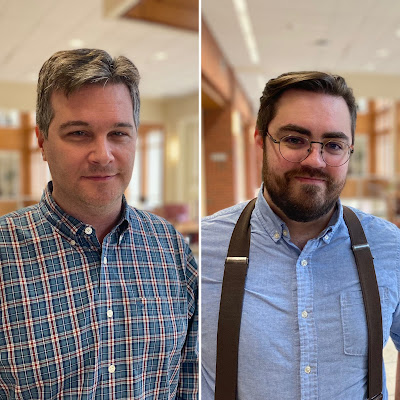OU Engineer Aims to Accelerate Development of mRNA Technology Platforms
Dimitrios Papavassiliou, a professor in the School of Chemical, Biological and Materials Engineering in the Gallogly College of Engineering, is investigating Distributed Ribonucleic Acid Manufacturing – DReAM – that would create a manufacturing technique to produce mRNA sequences on demand and on-site. The NSF funds the research through a four-year, $2 million grant from its Emerging Frontiers in Research and Innovation program.
“The mRNA molecules are very fragile and require extremely low temperatures for storage and transportation. The DReAM team is working to avoid the need to maintain cryogenic temperatures. We hope our work will revolutionize care for viruses such as HIV, various cancers and genetic disorders – but to achieve this we must produce cheaper therapeutics and solve the temperature challenge,” Papavassiliou said.
According to Nature magazine, hundreds of scientists have worked on mRNA vaccines for many years before the coronavirus pandemic brought a breakthrough. Experiments over the past few years were a stepping stone toward producing the most important and profitable vaccine in history, and the global sales of the mRNA-based COVID-19 vaccines have topped $50 billion in 2021 alone.
The multi-institutional project is led by the University of Pennsylvania Professor Daeyeon Lee and researchers from OU, Drexel University and the University of Colorado Boulder. Their goal is to create a manufacturing technique that produces mRNA sequences by isolating them in a way that removes the need for cryogenic temperatures. Papavassiliou explains that the unique approach will help laboratories make and store mRNA-based medications.
“The supply chain between manufacturer and patient will become shorter, faster and less expensive,” he said.
In Papavassiliou’s academic laboratory, researchers will look at molecular mechanisms that allow the production of mRNA in the water phase of bijels. Bijels – bicontinuous interfacially jammed emulsion gels – are structured emulsions of oil and water separated by a layer of nanoparticles. These nanoparticles keep the oil and water from forming isolated droplets, like when you shake a bottle of salad dressing. Using a supercomputer, Papavassiliou hopes to create optimized DReAM modular devices.
“The ultimate goal of the DReAM team is to produce mRNA therapeutics, including COVID-19 vaccines, in a revolutionary way, thus avoiding the need for very low-temperature storage,” Papavassiliou said.
The grant also will support outreach initiatives for K-12 and underrepresented students.
For more information about the Gallogly College of Engineering at OU, visit ou.edu/coe.
By Lorene A. Roberson, OU Gallogly College of Engineering



